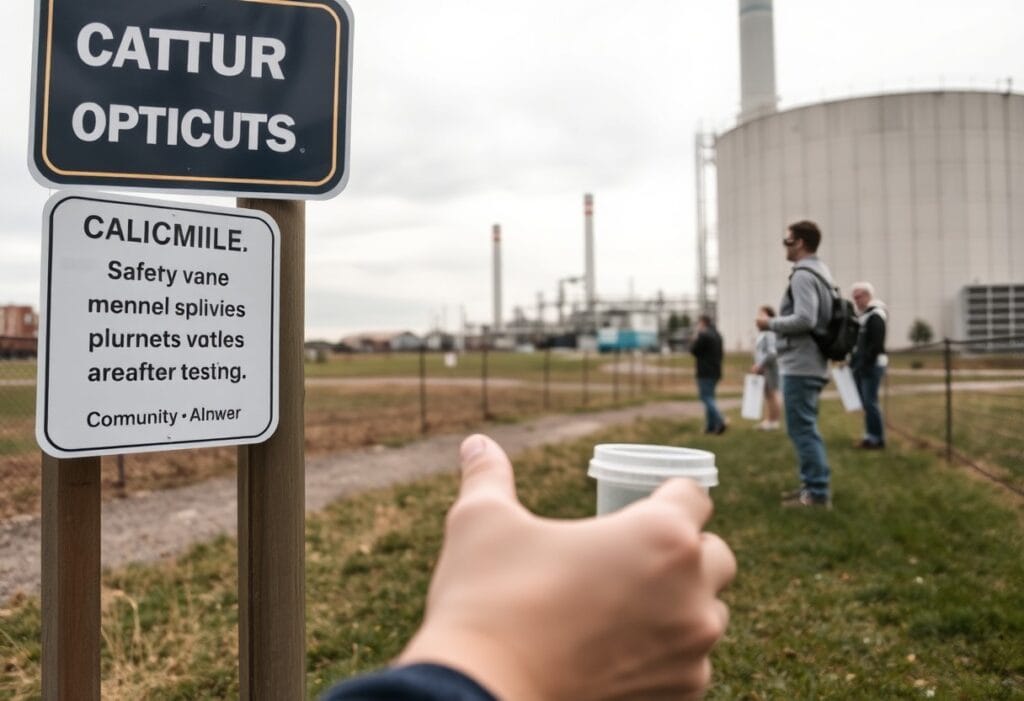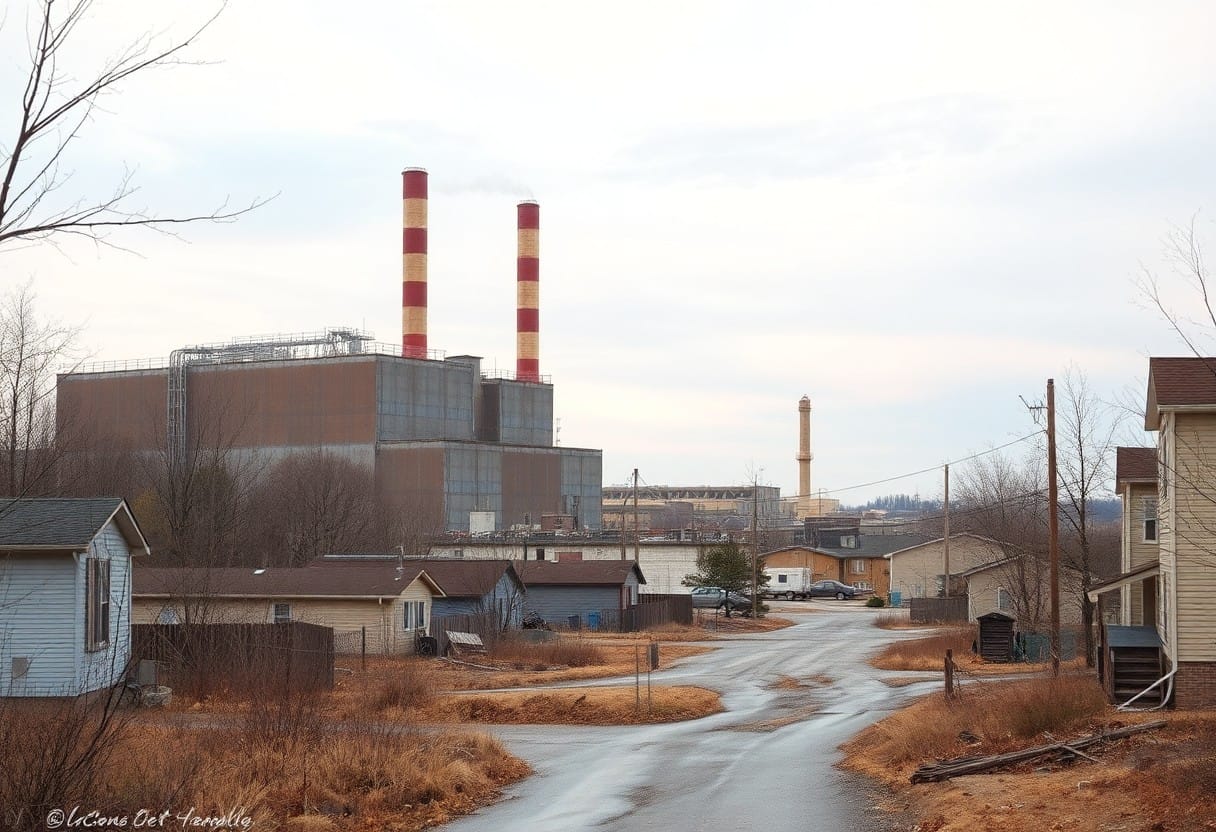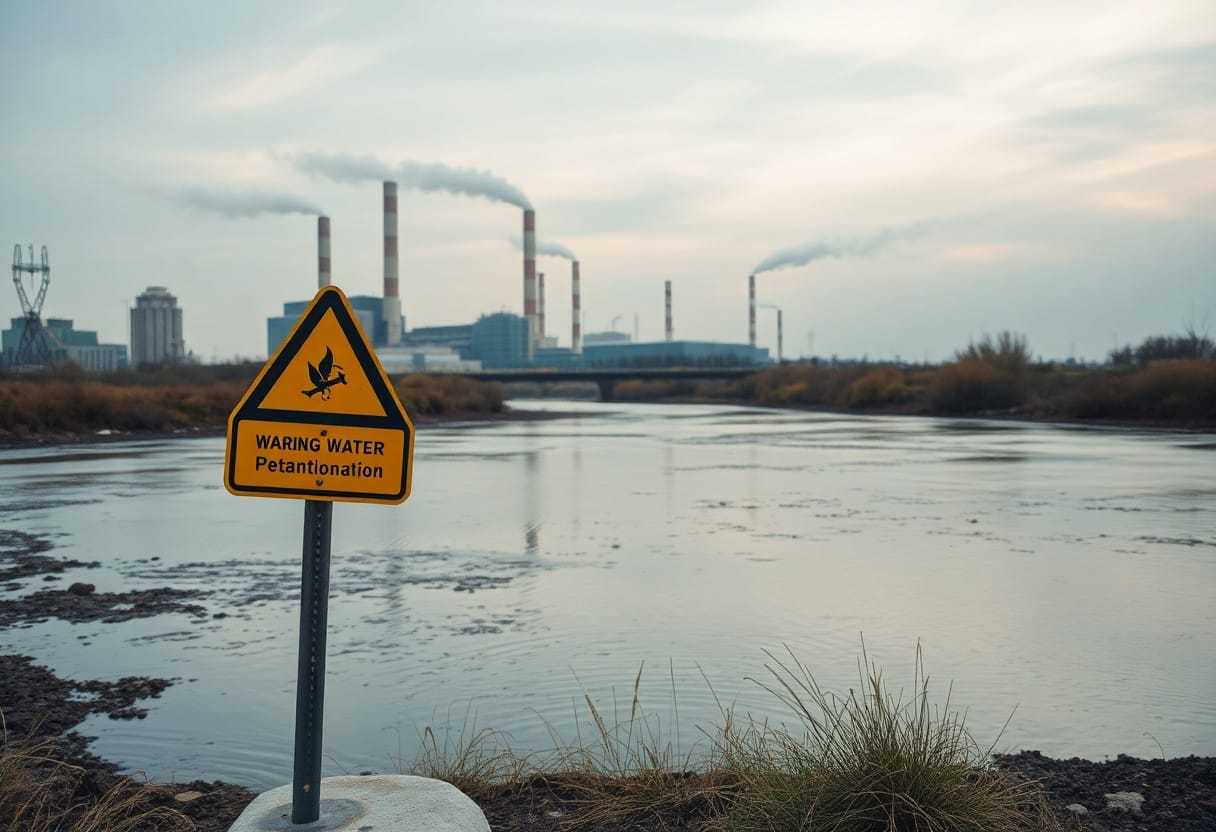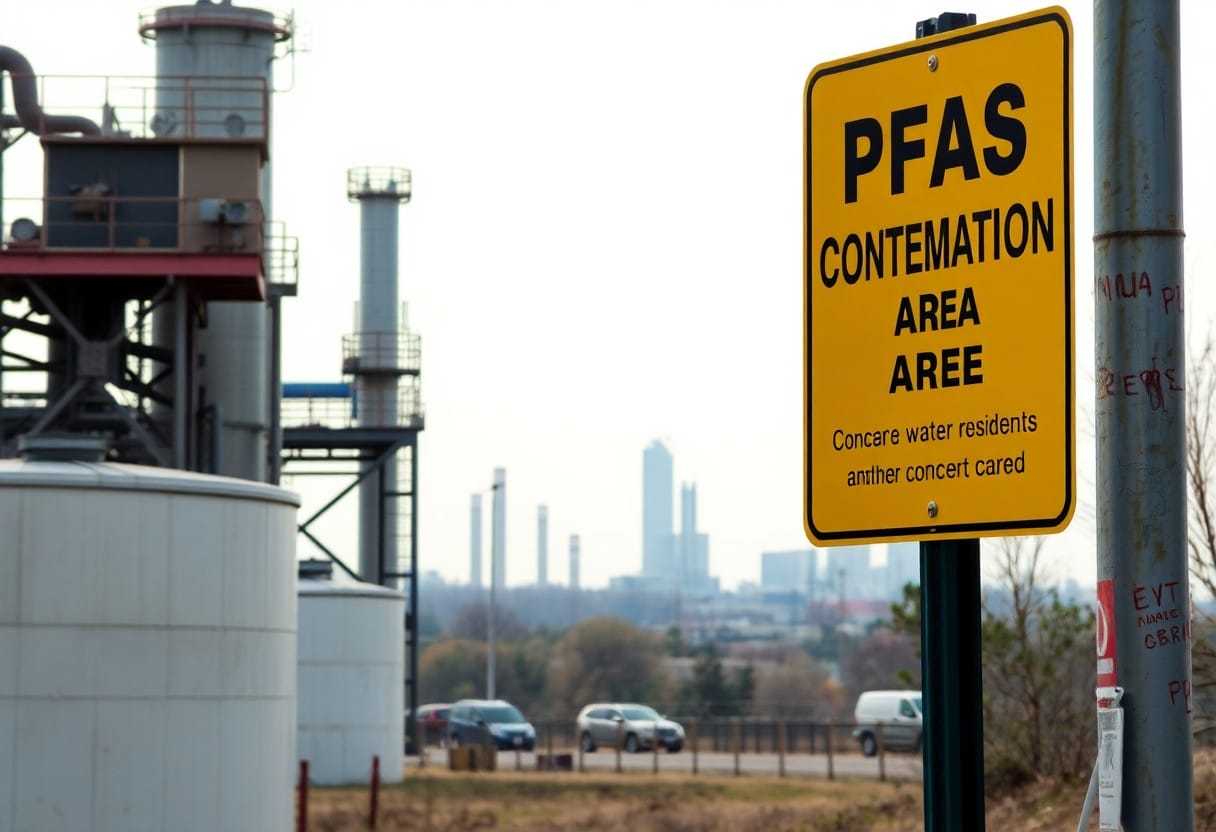You may have heard about the ongoing water crisis in Fayetteville linked to Chemours, a chemical manufacturer whose operations have raised serious concerns about PFOA contamination. As awareness of the potential health risks continues to grow, it’s necessary to examine what measures are being implemented to address this issue. This post will guide you through the latest developments and provide insight into the actions that could lead to improved water safety in your community.
Background of the Fayetteville Water Crisis
Before the current discussions surrounding the Fayetteville water crisis, residents were largely unaware of the significant contamination issues stemming from the nearby Chemours facility. As concerns about water safety grew, it became clear that the presence of harmful substances in the water supply posed serious risks to your health and the environment.
Overview of Chemours’ Operations
Operations at Chemours have been a point of concern, particularly regarding the manufacturing of per- and polyfluoroalkyl substances (PFAS). These chemicals, known for their persistence in the environment, have raised alarms due to their detrimental effects on both human health and local ecosystems.
Historical Context of Water Contamination
Between the 1970s and the present, Fayetteville has faced a worsening water contamination issue, primarily linked to Chemours’ discharges. This situation intensified as chemical manufacturing practices led to uncontrolled releases of toxic substances into the water supply, affecting numerous communities. Residents became increasingly concerned as studies revealed a correlation between the presence of PFAS and various health conditions, leading to calls for comprehensive action on water safety.
With the ongoing investigations and studies revealing alarming levels of PFAS in the water supply, many residents have voiced their frustrations over the lack of transparency from Chemours. This contamination has been linked to serious health issues, including immune dysfunction and certain cancers, putting additional pressure on public health officials. The gradual accumulation of data has forced both local and state authorities to reassess their regulations and foster greater accountability from Chemours in order to ensure your water safety and restore community trust.
Health Impacts of Contaminated Water
Some studies indicate that exposure to contaminants in water can lead to serious health issues, including reproductive problems, developmental delays in children, and increased risks of certain cancers. Understanding the implications of these contaminants is vital for you, especially if you reside in affected areas. Addressing water quality must become a priority to safeguard public health and ensure your community’s well-being.
Studies on Health Risks
For residents affected by contaminated water, various studies highlight a link between chemical exposure and increased health risks. Research has shown that per- and polyfluoroalkyl substances (PFAS) may result in higher cholesterol levels and compromised immune responses. This information is pertinent for you, as it emphasizes the need for vigilance regarding the potability of your water supply.
Community Concerns and Reactions
Against the backdrop of these alarming findings, local residents have expressed growing concern over water safety. Many community members are demanding accountability from Chemours and appropriate measures to address contamination. The community-driven focus emphasizes the importance of transparency and urgent remediation efforts to restore your confidence in local water sources.
Studies indicate that community reactions have been fueled by the persistent fear of long-term health impacts and a lack of clear communication from authorities. As residents, you may feel increasingly frustrated and anxious about the uncertainties surrounding water safety. Citizens are organizing town hall meetings and engaging with local advocacy groups to voice their concerns and push for immediate action. Your collective efforts are vital for fostering an environment where health and safety are prioritized, thereby holding responsible parties, like Chemours, accountable for the contamination that affects your drinking water.
Government and Regulatory Responses
One of the most pressing concerns in the Fayetteville region has been the response from government and regulatory bodies regarding the water crisis. Local initiatives and strengthened regulations are key to addressing the contamination and ensuring safe drinking water for you and your community. As stakeholders work together, the focus is on transparency and accountability, with the hopes of restoring public trust in local water sources.
Local Government Initiatives
At the local level, authorities have initiated several measures to directly address the water contamination issue. These include enhanced water testing and monitoring, public awareness campaigns, and support systems for affected residents. You may find local government efforts increasingly focused on improving infrastructure and engaging community members in decision-making processes, ultimately aiming to secure safer drinking water for your household.
State and Federal Regulations
About state and federal responses, these levels of government are ramping up regulations to ensure that water quality standards are not just maintained, but strengthened. You might witness increased oversight of chemical discharges and greater penalties for violations, while agencies work diligently to impose stricter guidelines that protect your water supply.
Government action has led to a series of new regulations intended to combat pollution from sources like Chemours, which contribute to the ongoing water crisis you’re concerned about. Federal agencies such as the Environmental Protection Agency (EPA) are pushing for stricter safety standards while working with state officials to rectify past lapses in enforcement. This means more frequent inspections and increased community engagement, which serve to not only address the current issues but also lay the groundwork for healthier water management in the future, directly impacting your environment and health.
Actions Taken by Chemours
After facing significant scrutiny over the impact of its operations, Chemours has initiated various measures aimed at addressing concerns surrounding water contamination in Fayetteville. These actions include investment in advanced technologies to reduce per- and polyfluoroalkyl substances (PFAS) emissions and the implementation of community outreach programs designed to keep residents informed about safety and environmental measures.
Corporate Responsibility and Transparency
Between commitments to reduce emissions and efforts to enhance communication with community members, Chemours is striving to establish a greater sense of corporate responsibility and transparency. You can find updated information on their latest initiatives, ensuring that you remain informed about their approach to environmental accountability.
Remediation Efforts and Progress
About their remediation efforts, Chemours is actively working on cleaning up impacted areas through established protocols and ongoing monitoring. You should know that the company has partnered with local authorities to develop plans for contaminated site remediation which are important for restoring both the environment and public confidence.
Also, Chemours is implementing a comprehensive strategy to mitigate the effects of contamination through site assessments and ongoing remediation techniques. Their efforts cover the extraction of contaminants, environmental monitoring, and community engagement initiatives. With the goal of minimizing health risks, Chemours has also begun investing in state-of-the-art solutions that aim to reduce further contamination, showing a positive shift towards environmental restoration and public safety.
Community Activism and Advocacy
Unlike previous years, the community response to the water crisis in Fayetteville has escalated into a powerful movement advocating for transparency and accountability. Residents are challenging Chemours and other chemical companies by demanding stricter regulations and calling out How Chemical Companies Avoid Paying for Pollution. Your participation in local advocacy efforts can strengthen this united front, pushing for healthier water sources and responsible corporate practices.
Grassroots Movements in Fayetteville
Among the many activists in Fayetteville, grassroots movements have gained momentum, mobilizing residents for clean water initiatives. These groups aim to raise awareness about the dangers of water contamination and advocate for immediate action from local government and Chemours.
Partnerships with Environmental Groups
With a growing number of partnerships between local activists and environmental organizations, Fayetteville residents are not alone in their fight. Activist groups have formed alliances with established NGOs to leverage resources and develop effective strategies.
At the forefront of this collaboration is the commitment to educate the public about the health risks posed by toxic chemicals and to advocate for policy changes that prioritize community safety. Together, these partnerships aim to achieve long-lasting change and enhance regulatory measures governing water safety. The benefits of such alliances are evident, as they provide expertise, amplify community voices, and lead to more organized efforts in combating the pollution crisis effectively.
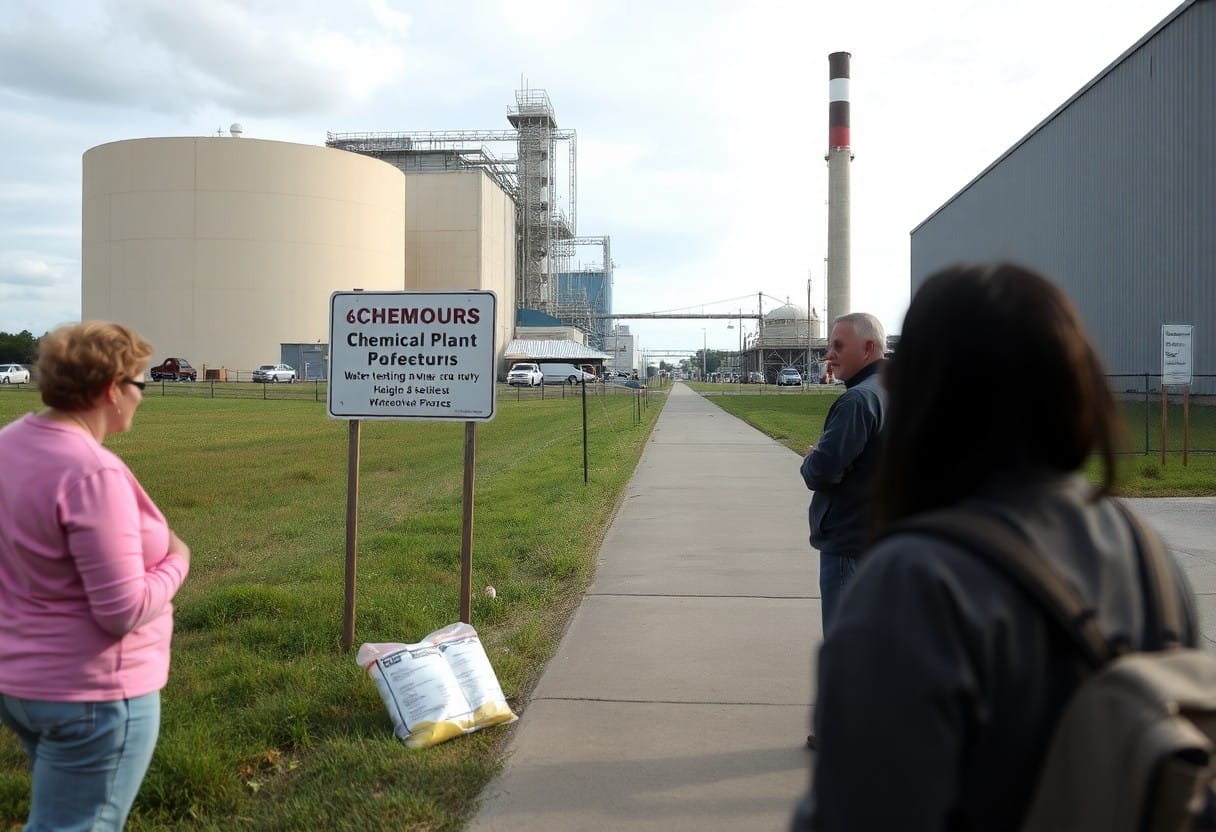
Future Outlook and Challenges
Not every issue surrounding Chemours and Fayetteville is being addressed equally. While efforts are underway, 150K homes near Chemours Fayetteville Works plant now face the prospect of rebuilding trust with local authorities. This complex situation requires long-term commitment and collaboration to ensure the safety of your drinking water.
Long-term Environmental Monitoring
On the horizon, ongoing environmental monitoring will be crucial to understanding how contamination persists and affects local ecosystems. Continuous assessments can provide insights necessary for informed decision-making, helping you stay updated on potential risks to your water supply.
Ensuring Safe Drinking Water for Residents
Water safety remains a top priority for residents in areas impacted by Chemours. Your concerns about contamination must lead to action, prompting both governmental and corporate accountability for maintaining high water quality standards.
Challenges in ensuring safe drinking water for residents include navigating regulatory loopholes and the need for consistent testing protocols. The presence of PFAS chemicals, known for their long-lasting effects, poses serious risks to health. Your local authorities should remain vigilant, demanding transparency and accountability while working with Chemours to implement effective solutions. This ongoing effort is crucial for protecting your community and restoring confidence in your water supply.
Conclusion
Upon reflecting on the situation between Chemours and Fayetteville, it becomes clear that the water crisis is finally receiving the attention it deserves. You may find solace in knowing that local communities are advocating for better oversight and more robust regulations. Your voice matters as residents push for accountability and improved water quality. Engaging with local initiatives can empower you to influence positive change in your environment, ensuring that access to safe and clean drinking water is a priority moving forward.


